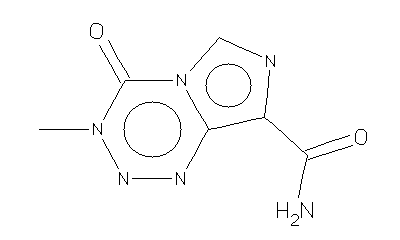Sponsored by: EORTC Melanoma Cooperative Group
Rationale: Drugs used in chemotherapy use different ways to stop tumor cells from dividing so they stop growing or die. Radiation therapy uses high-energy x-rays to damage tumor cells. It is not yet known if chemotherapy is more effective with or without radiation therapy in treating brain metastases.
Purpose: Randomized phase III trial to compare the effectiveness of chemotherapy with or without radiation therapy to the brain in treating patients who have stage IV melanoma with asymptomatic brain metastases.
Study Type: Interventional
Study Design: Treatment
Official Title: Phase III Randomized Study of Temozolomide With or Without Whole Brain Radiotherapy in Patients With Stage IV Melanoma With Asymptomatic Brain Metastasis
This is a randomized, multicenter study. Patients are stratified according to LDH levels (less than 225 U/L vs. 225 U/L or more), concurrent metastases (visceral vs. soft tissue), and participating center. Patients are randomized to one of two treatment arms.
* Arm I Patients receive oral temozolomide once daily on days 1-5. Treatment continues every 4 weeks for a maximum of 1 year in the absence of disease progression or unacceptable toxicity.
* Arm II: Patients receive temozolomide as in arm I and whole brain radiotherapy on days 8-12 and 15-19 during the first course of chemotherapy. Quality of life is assessed before beginning each course and then every 4 weeks after completion of study drug.
Patients are followed every 4 weeks.
Ages Eligible for Study: 18 years and above
Genders Eligible for Study: Both
Criteria:
* Histologically confirmed unresectable metastatic melanoma
* Must have asymptomatic brain metastasis that is not amenable to surgery or stereotactic radiosurgery (Gamma Knife, LINAC)
* Must have concurrent visceral/soft tissue metastases
* At least 1 site of measurable disease (not necessarily the brain metastasis)
* Documented evidence of disease progression defined by 1 of the following conditions:
* More than 25% increase in the size of at least 1 measurable lesion
* Appearance of a new lesion
* A significant increase in the size of non-measurable disease
* No neurological symptoms, including signs of elevated intracranial pressure
A total of 250 patients will be accrued for this study within 2 years.
Contact: International Study Chair: Juergen Becker, MD, PhD
Universitaet Wuerzburg/Hautkrankheiten
Wuerzburg, D-97080, Germany
Tel: 931-20126396
COPYRIGHT 2003 Journal of Drugs in Dermatology
COPYRIGHT 2004 Gale Group



